- Physical prowess is often the primary focus in sports
- The psychological intricacies of tennis are unique
- It is a unique dance between the mind and the body
Physical prowess is often the primary focus in sports and tennis emerges as a unique battleground. Renowned sports psychologist George Mumford says that the psychological intricacies of tennis are unique. He terms it a unique dance between the mind and the body.
His insights reveal that tennis, beyond its role as a sport, serves as a metaphor for life. It encapsulates the challenges, victories, and failures that define the human experience.
Sports Psychologist George Mumford Reveals Why Tennis is a Unique Sport
As athletes step onto the court, they carry not only their equipment but a profound mix of experiences, fears, and aspirations that shape the narrative of each match. Tennis enthusiasts understand that discussing this sport transcends mere game analysis.
It’s a conversation about life itself. Every match unfolds as a journey—a narrative of challenges, triumphs, and setbacks. The tennis court becomes a canvas upon which athletes paint their stories. Battling not only against opponents but also against their internal limitations and fears.
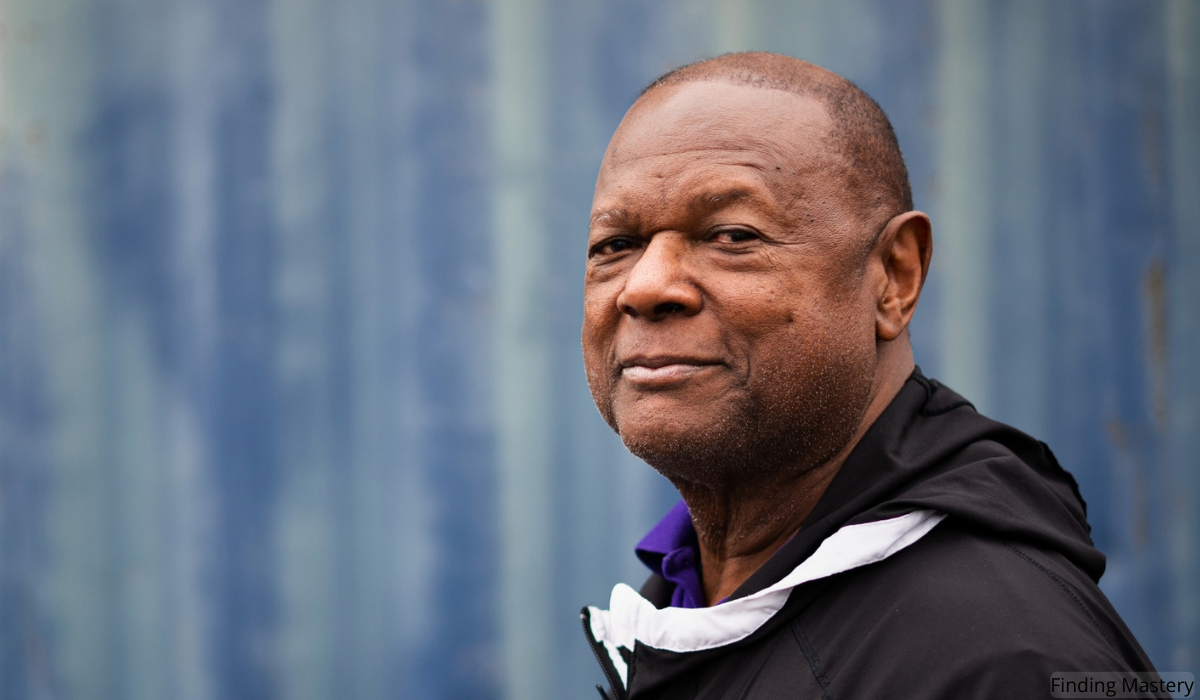
Sports Psychologist George Mumford. Photo/Maria Shriver’s Sunday Paper
In both tennis and life, change is an inevitability. Mumford’s wisdom emphasizes that many aspire to change but find themselves tethered to their ‘old self,’ clinging to entrenched habits and the familiar discomfort they bring.
The essence of growth, both on the court and in life, lies in shedding outdated strategies and embracing new approaches, even when it requires stepping outside one’s comfort zone.
Dealing With Tennis Stress
On the tennis court, as in life, identifying with suffering becomes a significant barrier. Some athletes resist evolving their play style, fear experimenting with new techniques. Others struggle to overcome the haunting memories of past defeats. This resistance often stems from a deeper fear—the fear of the unknown and the loss of identity tied to the ‘old self.’
According to the renowned sports psychologist, a tennis coach becomes a critical figure at this point. He says that a coach’s role extends beyond imparting gameplay techniques. They serve as mentors guiding athletes on a personal growth journey.
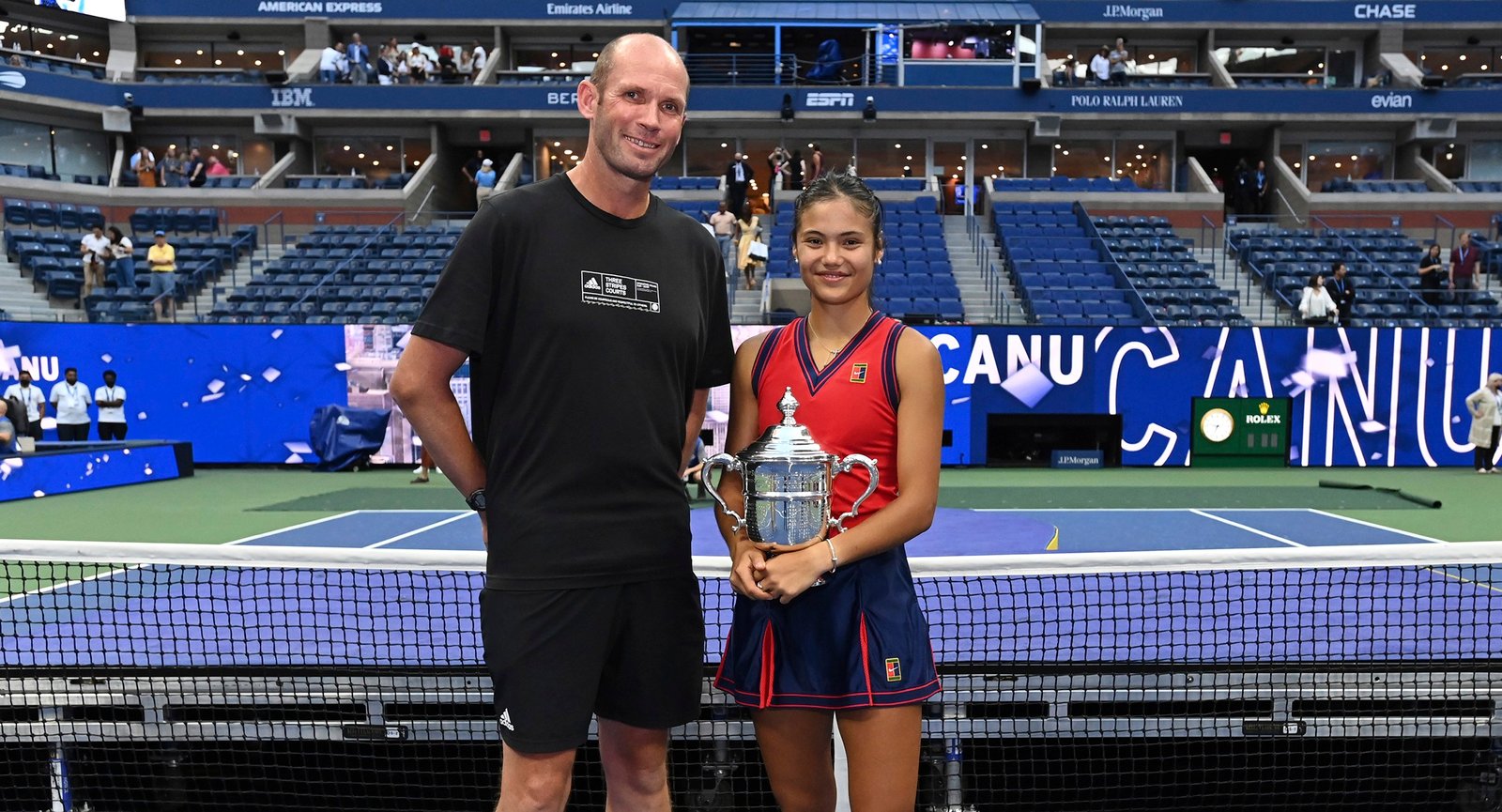
Andrew Richardson with Emma Raducanu. Photo/tennis.com
Coaches help players recognize and surmount psychological barriers, fostering an attitude open to change and adaptation. In tennis, this translates to greater flexibility on the court, creative problem-solving, and resilience in the face of unforeseen challenges.
How to Win in Tennis
The most significant victories in tennis, as in life, are internal. Triumphs over personal limits, the courage to face fears, and the ability to adapt to change define true success. Mumford underscores the importance of this internal process—a journey every athlete must undertake to achieve greatness.
This internal process involves knowing a player’s strength, weaknesses and what they can change to be better. Mumford says this is sure way to work holistically on the things needed to become a victor on the court.
Inner Strength
Developing internal strength for tennis transcends the purely physical aspects, requiring a holistic approach that encompasses the mental, emotional, and spiritual dimensions. In terms of mentality, fostering positive self-talk is essential, replacing self-doubt with empowering affirmations and visualizations to build confidence and resilience.
Meditation

Serena Williams Racket. Photo/Perfect Tennis
Developing focus and concentration through practices like meditation enhances mental clarity and the ability to stay present on the court. Emotional control is equally crucial, requiring the cultivation of emotional intelligence to effectively manage frustration and anger, ensuring a calm and focused state during intense matches.
Internal motivation plays a pivotal role, urging players to rediscover their passion and purpose for the game. Connecting with the intrinsic reasons for playing fuels determination and drive for improvement. Setting clear, realistic goals aligned with a long-term vision, and embracing a growth mindset, enables players to view challenges and setbacks as opportunities for continuous learning and improvement.
The spiritual dimension involves cultivating a profound connection to the game and one’s inner self. Developing presence by heightening awareness of body and breath allows players to tap into an intuitive flow state. Expressing gratitude for the opportunity to play and the lessons learned fosters a positive outlook and appreciation for the entire tennis journey.
Prioritizing these internal aspects establishes a robust foundation for sustained success in tennis. It’s crucial to understand that inner strength is a journey, not a destination. Embracing the process, committing to continuous growth, and allowing the inner champion to shine through are the keys to unlocking one’s full potential on the court.


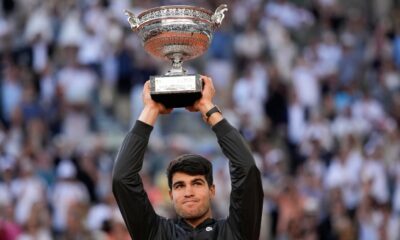

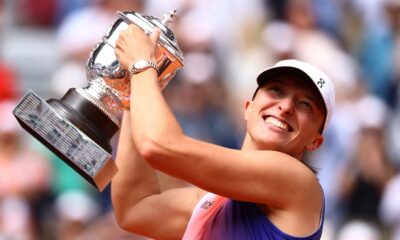

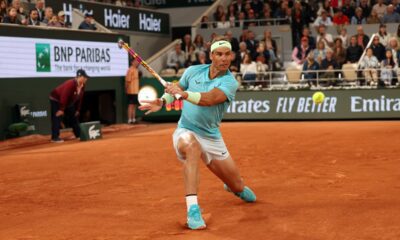










You must be logged in to post a comment Login